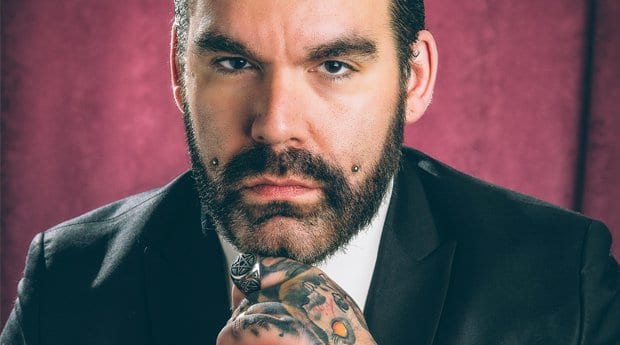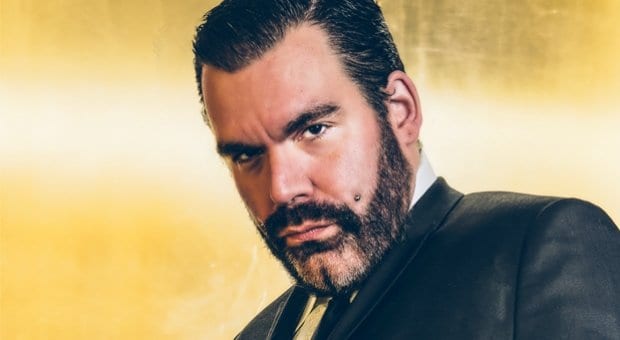
caption goes here*********** Credit: Alejandro Santiago
Canadian novelists are trapped in “a caste system,” Russell Smith argued recently in The Globe and Mail, in which all attention is paid to literary awards and promoting only a few potential prize-winners. This blockbuster mentality can lead only, he fears, “to a homogenized literary landscape and no place at all for the weird and uncategorizable.”
This would be a tragedy for Canadian literature and for Toronto writer Greg Kearney, whose first novel, The Desperates, is weird, uncategorizable and deserving of a place on any award shortlist. Is it Kearney’s fearless look at cancer, AIDS, crystal-meth addiction, awkward rim jobs and personal failure that will keep The Desperates off the CBC’s mainstream radar? Or is it the fact that he somehow makes all of this hysterically funny? Propriety be damned, Kearney is that rare writer who drags us to the darkest of places while making us laugh the entire time.
“The book is all about frenzy,” Kearney says, keenly observing how a person’s carefully cultivated persona, illusions, even sense of self can be utterly stripped away in the throes of drug abuse, sexual obsession or, worst of all, love.
In 1998 Toronto, 19-year-old Joel is painfully realizing that he’s not particularly good at anything, much less a career as a phone-sex operator, but it’s over the phone that he meets Edmund, who he immediately decides is the love of his life. Edmund is a middle-aged widower “quietly, even contentedly, dying” but surprised to find himself vital again, thanks to the just-introduced cocktail of anti-viral drugs. Meeting diva-obsessed hustler Binny introduces him to the thrills and terrors of a crystal-meth spree as the two of them search for Toronto’s most punishing top.
Kearney says that his partner, while reading the drafts, “was really resentful towards Binny, who I just find so charming. Wrong or right, Binny’s survival skills have sustained him, he knows his appetites, and there’s really no subterfuge with him, which I adore. I loved riffing off him and pouring all my arcane 1980s pop lore into him.” While the ritual Joel endures to remove the evil spirit of Fleetwood Mac’s Christine McVie is the book’s silliest set-piece, there’s a lot of “diva realness” for fans, and Kearney was careful with his name-dropping. “You have to be!” he says. “I’d be read to filth by my peers if I fucked any of them up!”
More importantly, Kearney was cautious in depicting an era that’s had disturbingly little attention. Edmund represents a huge group of gay men battle-scarred from the AIDS crisis and looking for release.
“There’s just such a void in recent literature around the meth craze,” Kearney says. “It’s briefly touched upon in How To Survive a Plague and other documentaries, but there’s been no comprehensive text or work of fiction on this … and I have a rare perspective in that I was on the sexual frontlines totally sober.”
While he avoided the meth pipes offered to him, Kearney says, the parties that featured them “were way hotter, initially at least, than most turgid, awkward group-sex scenes.” Crystal meth has been a scourge to the gay community this past decade or so but, as Edmund experiences in the book, immediately liberating, too.
“Marc [Côté, the book’s editor] was quite happy to have it be a cautionary tale on every front, but I kept thinking, ‘What would Mikiki think?’ [A former HIV-positive prevention officer at the PWA Foundation], Mikiki works in HIV/AIDS and harm-reduction and his politics are flawless. I needed to make sure it was sex-positive, that Binny was depicted as a sex worker with some agency and not just some vampire, that the drugs were rendered accurately.”
It’s this compassionate fairness that permeates The Desperates, even as Kearney makes savage fun of his characters’ failings. Joel’s grandmother, for example, is a character he loves “who’s based pretty clearly on my own maternal grandmother, who was just a bilious old hag,” he says with a laugh.
By novel’s end, Kearney has left most of his characters stripped of all their delusions, defences and even dignity, but it’s only in that place that real life can begin for the ones who survive the experience. Even its author is left with nothing.
“I’m not sure what to do next,” Kearney says. “I feel like I’ve used up everything in my jewellery box for this novel. There’s really no autobiography left to mine at this moment. It’s all there.”
The Desperates By Greg Kearney
Published by Cormorant Books
Available at Glad Day Bookshop, 598 Yonge St
gladdaybookshop.com


 Why you can trust Xtra
Why you can trust Xtra


